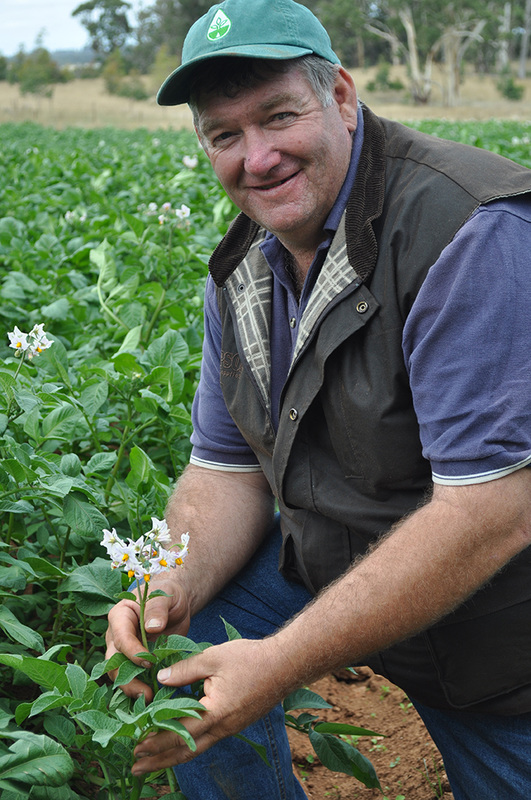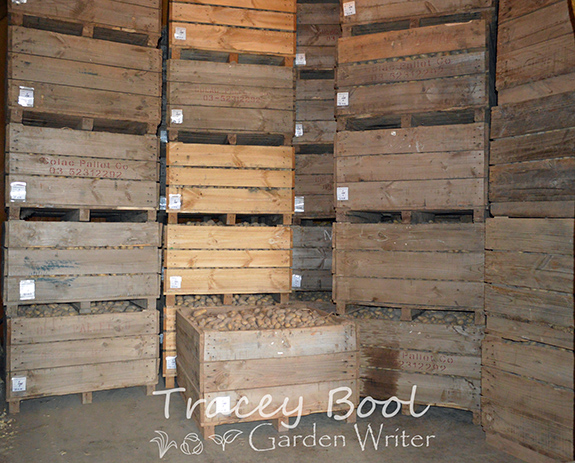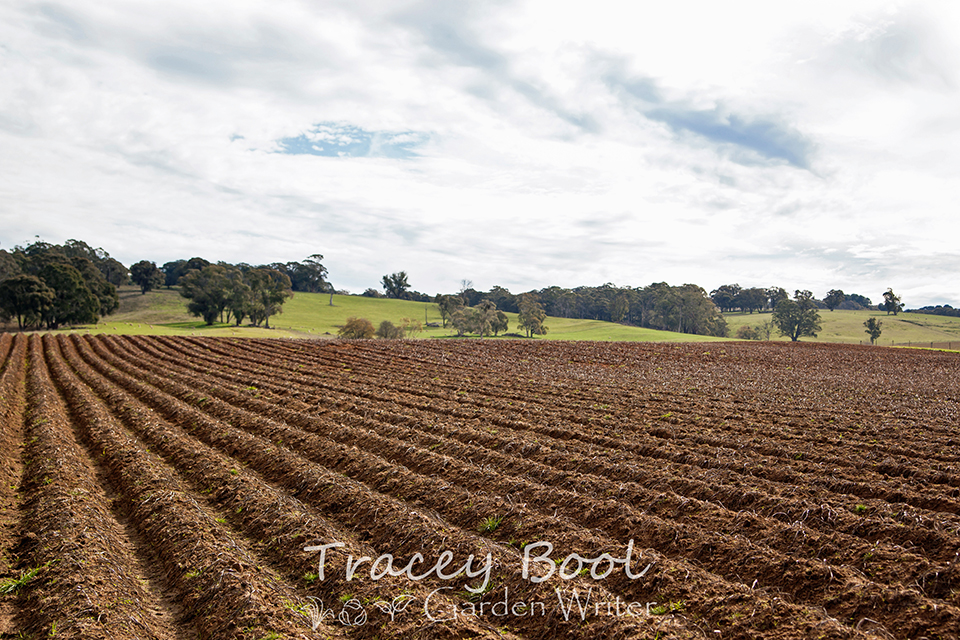|
Crookwell NSW, Forward Thinking, and the Not-So-Humble Potato
(5th May 2016) I recently had the pleasure of meeting Garry Kadwell, a 4th generation potato farmer extraordinaire, and his lovely partner Jodie, at Rosedale in Crookwell NSW. Garry has a holistic view to life, including care of the land, stock, wildlife and people. He is one of the most determined, driven and passionate people I have ever met and his achievements are nothing short of incredible. It was at this point I realised two columns would be required to cover this potatorific journey, with this week being about the potato side of operations. His 730 acre property - 32% of which is designated to permanent conservation - provides the ideal growing conditions for potatoes due to its high altitude, frosty winters with intermittent snow, fertile basalt soil, and relatively isolated location. Garry also leases additional land in the area to accommodate the crop rotation requirements of this dynamo household vegetable. Unsurprisingly, Crookwell is considered one of the cleanest seed production areas in the Southern Hemisphere. The production process from planting of mini tuber seedlings to the sale of certified seed potatoes is 5 years. 20 varieties are grown, including several with a low GI. This season, the team is set to harvest an impressive 2000 tonnes. Kelp & zinc is applied at planting time, along with a multi-combination fertiliser. Resource such as manure, leaves and twigs are also collected on site and locally for organic fertiliser production – a staggering 500 tonnes of compost is produced annually. Leaf/sap testing for pest/disease incidence and nutrient deficiency/toxicities of crops is carried out regularly, as are field inspections and soil testing. Consequently, Garry is able to apply precision applications of fertiliser as needed, meaning no excess runoff to waterways or the water table. Potatoes are one of the world’s most economical crops to produce, with the highest protein component for like crops, and the lowest comparable water use. The crops at Rosedale are typically irrigated twice throughout the growing season with gargantuan but none-the-less portable irrigation systems, using water from on-site dams. Garry implements IPM strategies and avoids using pesticides wherever possible to encourage diversity and increase beneficial insect populations. For example, this year Garry has planted radish as a fast-growing cover crop, which helps break up the soil and acts as a bio-fumigant. And on the health front, spuds assist in the prevention and management of chronic disease, are a good source of fibre, are low in fat and high in potassium (more than bananas I might add). Garry enjoys his potatoes mashed, and recommends using a stick blender to produce the best consistency. The following is an alternative take on mash, which I come across at the local café: Coffee Mash Potatoes Ingredients: 6 x medium potatoes 1/3 cup brewed coffee 1/4 cup sour cream Butter, salt & pepper to taste Method: Cook, peel & mash potatoes as per traditional methods Add coffee, fold in with spatula to combine Add sour cream and butter Season to taste |



